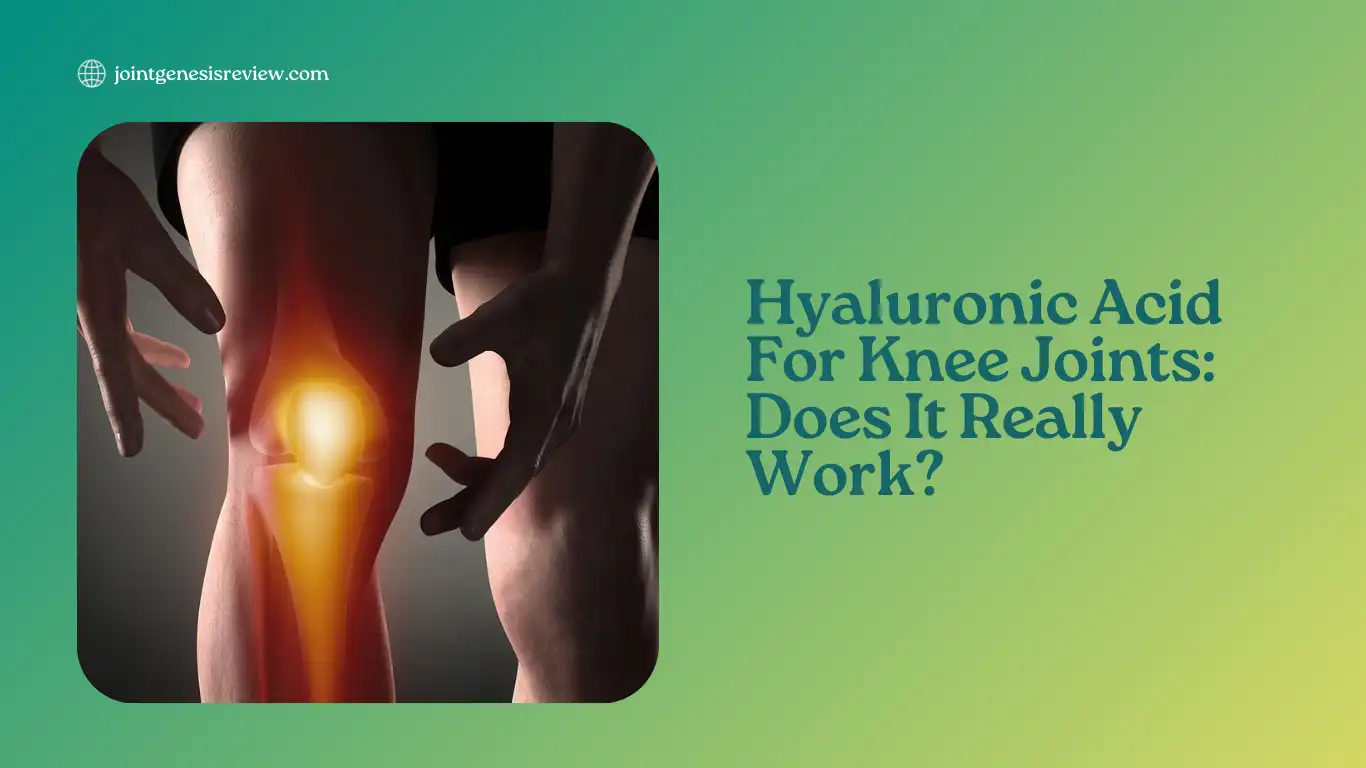Hyaluronic Acid For Knee Joints: Does It Really Work?
Curious about hyaluronic acid’s efficacy for knee joints? Delve into its potential to enhance joint health, alleviate discomfort, and improve mobility.

Disclaimer: This article has been generated with the assistance of AI tools. While our research team has fact-checked the content, readers should independently verify information for accuracy and reliability.
Knee pain can be a real nuisance, affecting millions of people worldwide. It can make everyday activities like walking, climbing stairs, or even sitting for long periods a challenge. In fact, according to the Arthritis Foundation, over 50 million adults in the United States alone suffer from some form of arthritis, with the knee being one of the most commonly affected joints. As people search for effective solutions to alleviate their knee pain, hyaluronic acid injections have gained popularity as a potential treatment option.
Hyaluronic acid, a naturally occurring substance in the body, plays a crucial role in lubricating and cushioning the joints. However, as we age or experience certain conditions, the amount of hyaluronic acid in our joints can decrease, leading to pain and stiffness. This has led many to wonder if supplementing hyaluronic acid through injections can indeed provide relief and improve knee joint function.
How Long Does It Take For Hyaluronic Acid To Work On Knees?

One of the most common questions people have about hyaluronic acid injections is how long it takes to experience relief. The answer can vary depending on the individual and the severity of their knee condition. Some people may notice an improvement in their symptoms within a few days of receiving the injection, while others may need several weeks to see a significant difference.
Generally, the full effects of hyaluronic acid injections are usually seen around 4-12 weeks after the initial treatment. It’s important to note that hyaluronic acid injections are often given as a series of shots over several weeks, which can contribute to the gradual improvement in knee pain and function.
What Is The Success Rate Of Hyaluronic Acid?
The success rate of hyaluronic acid injections for knee pain can vary, but many studies have shown promising results. A review of multiple studies found that hyaluronic acid injections were more effective than placebo injections for reducing knee pain and improving function in people with osteoarthritis.
However, it’s essential to keep in mind that individual results may differ, and not everyone will respond to the treatment in the same way. Factors such as age, the severity of the knee condition, and overall health can influence the effectiveness of hyaluronic acid injections.
Does Hyaluronic Acid Really Work For Joints?
The scientific evidence suggests that hyaluronic acid can indeed be beneficial for joint health, particularly in the case of knee osteoarthritis. By providing lubrication and cushioning, hyaluronic acid injections can help reduce friction between the bones in the knee joint, thereby alleviating pain and stiffness.
Moreover, some studies have shown that hyaluronic acid injections may have a protective effect on the cartilage in the knee joint, potentially slowing down the progression of osteoarthritis. However, it’s crucial to remember that hyaluronic acid injections are not a cure for knee problems and may need to be repeated periodically to maintain the benefits.
What Is The Success Rate Of Gel Injections For Knees?
Gel injections, also known as viscosupplementation, are a type of treatment that involves injecting a gel-like substance containing hyaluronic acid directly into the knee joint. The success rate of gel injections for knees can be quite high, with some studies showing that up to 80% of patients experience significant relief from their symptoms.
However, as with any treatment, individual results may vary, and some people may not respond as well to gel injections as others. It’s essential to consult with a healthcare professional to determine if gel injections are the right choice for your specific knee condition.
Sum Up
In conclusion, hyaluronic acid injections offer a promising treatment option for those suffering from knee pain and osteoarthritis. By replenishing the natural lubricant in the knee joint, these injections can help reduce pain, improve mobility, and potentially slow down the progression of the condition.
While the success rate of hyaluronic acid injections is generally high, it’s important to have realistic expectations and understand that individual results may vary. The time it takes to experience relief can also differ from person to person, with some noticing improvements within days and others requiring several weeks.
If you’re considering hyaluronic acid injections for your knee pain, it’s crucial to consult with a healthcare professional to determine if this treatment is right for you. They can assess your individual needs and help you weigh the potential benefits and risks.
In addition to hyaluronic acid injections, maintaining a healthy lifestyle through regular exercise, weight management, and a balanced diet can also play a vital role in supporting knee joint health.
Have you tried hyaluronic acid injections for your knee pain? Share your experiences and any other treatments that have worked for you in the comments below!
Alex Milan
Alex Milan is a licensed osteopath and acupuncturist based in United States. He graduated from the British School of Osteopathy in 2017, where he received extensive training in osteopathic techniques for treating musculoskeletal conditions. Alex is passionate about providing patients with holistic, drug-free pain relief and enabling people to live active, healthy lives. He utilizes osteopathic manipulative techniques along with acupuncture and lifestyle advice to address the root causes of pain and dysfunction in the body. With expertise in areas including sports injuries, back and neck pain, headaches, and repetitive strain injuries, Alex has helped numerous patients find relief from pain and return to their regular activities.
